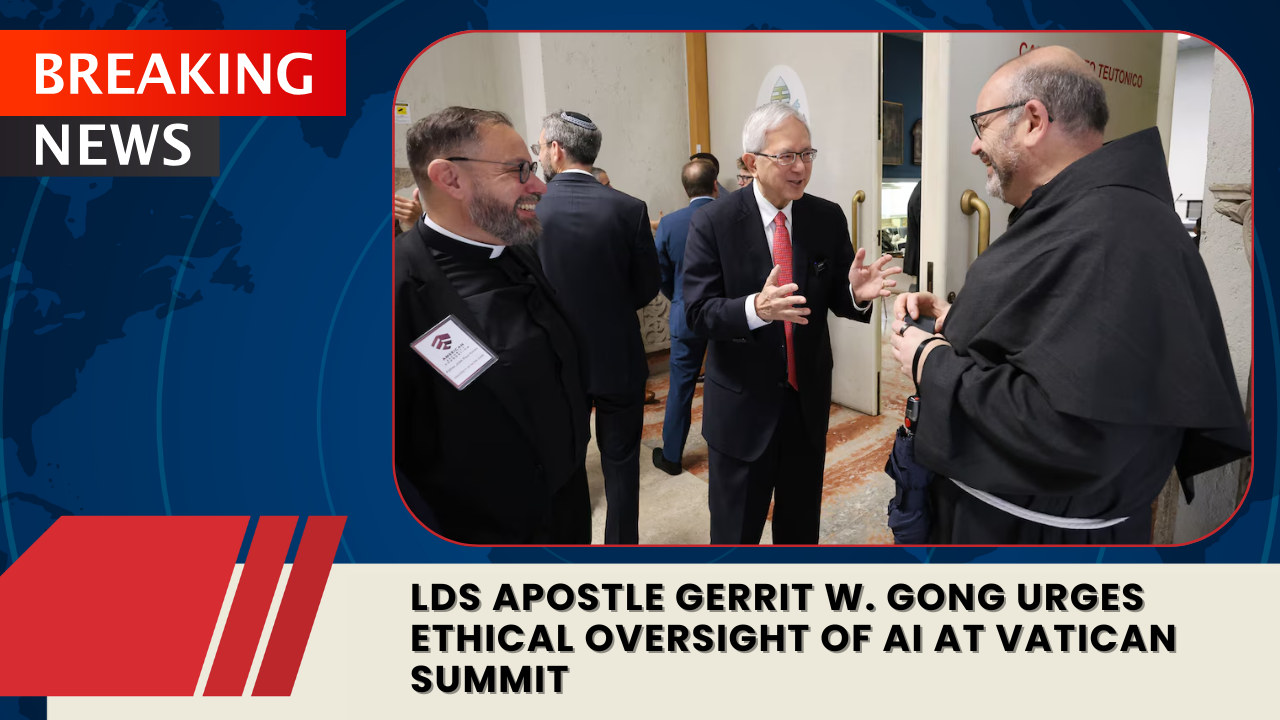VATICAN CITY — Elder Gerrit W. Gong, a member of the Quorum of the Twelve Apostles of The Church of Jesus Christ of Latter-day Saints, called on global faith and moral leaders this week to help guide the ethical development of artificial intelligence.
Speaking at a summit on AI ethics hosted at the Vatican, Gong warned that while artificial intelligence offers great potential for good, it also carries the risk of distorting truth, spreading misinformation, and undermining moral accountability if left unchecked.
“Even in a world influenced by secular thought,” Gong said, “many citizens want moral and religious leaders to help ensure A.I. is accurate, respectful, and morally based.”
The Dangers of “Made-to-Order Truth”
Gong highlighted the growing danger of AI’s ability to personalize information, warning that the technology can easily become an echo chamber that tells people only what they want to hear.
“As memory and personalization enhance A.I. as an echo chamber,” he said, “we may find A.I. becomes very good at telling us what it thinks we want to hear. Virtual made-to-order truth is not truth.”
The apostle’s message centered on the idea that truth should never be customized for convenience or ideology — a principle increasingly relevant as AI becomes a dominant tool in shaping public understanding.
Faith and Technology Collaboration
Gong revealed that the Church has assembled a specialized AI ethics and faith evaluation team, which is working with “socially responsible” AI companies, universities, and religious institutions — including Baylor University, Brigham Young University, Notre Dame, and Yeshiva University.
This collaborative effort is testing systems designed to evaluate AI models for fairness, religious accuracy, and moral responsibility. The goal, according to Gong, is not to impose religious doctrine on technology, but to ensure that AI represents all faiths “accurately and respectfully.”
A Call to Moral Leadership
Gong urged faith leaders from all denominations to participate in this global ethical initiative, emphasizing that the influence of religion should serve as a moral compass for emerging technologies.
“Portraying faith traditions accurately and respectfully is not an imposition of religion on A.I.,” he said. “Rather, it is a public necessity — especially as A.I. becomes a primary source of information about belief and spiritual practice.”
His remarks underscore the Church’s increasing engagement with technological ethics, echoing earlier statements cautioning Latter-day Saints against using AI to generate sermons or spiritual talks.
As AI continues to shape public life, Gong’s message from the Vatican serves as a reminder that the stewardship of truth — both human and digital — remains a shared moral responsibility.



